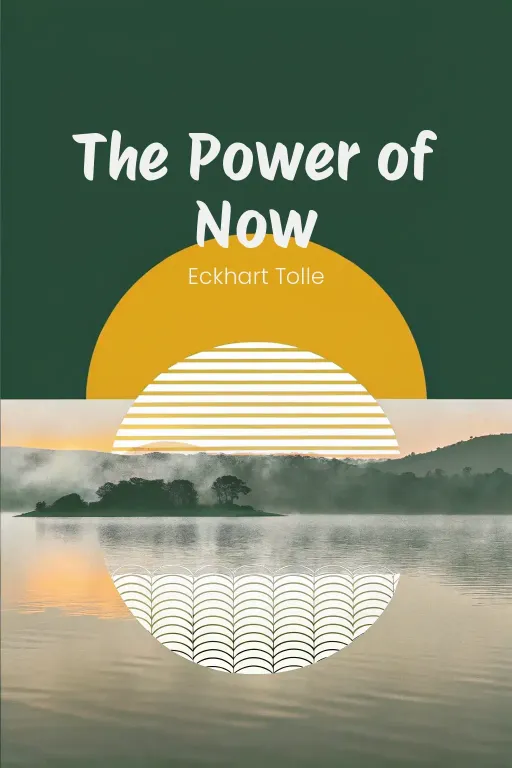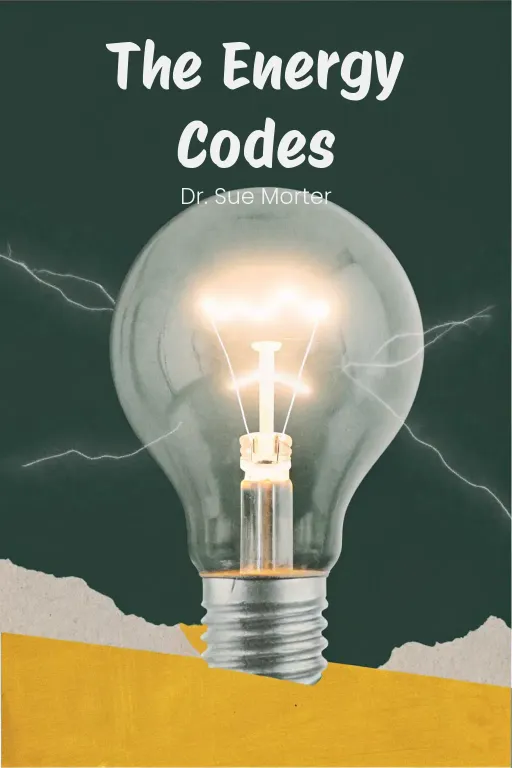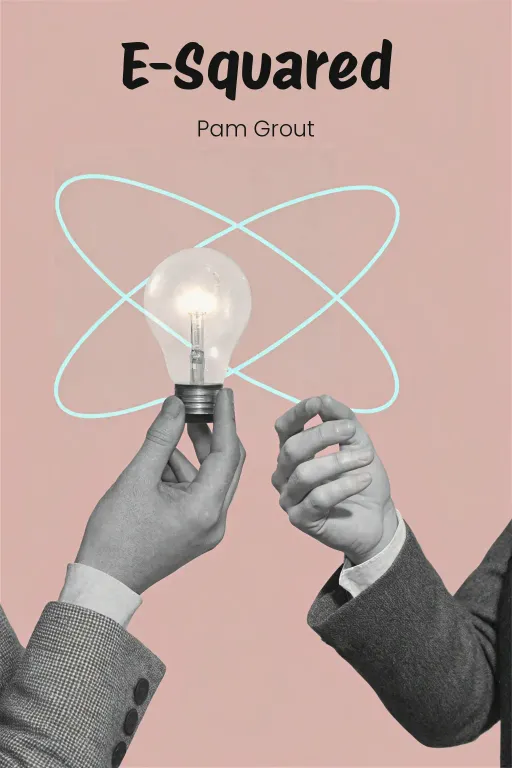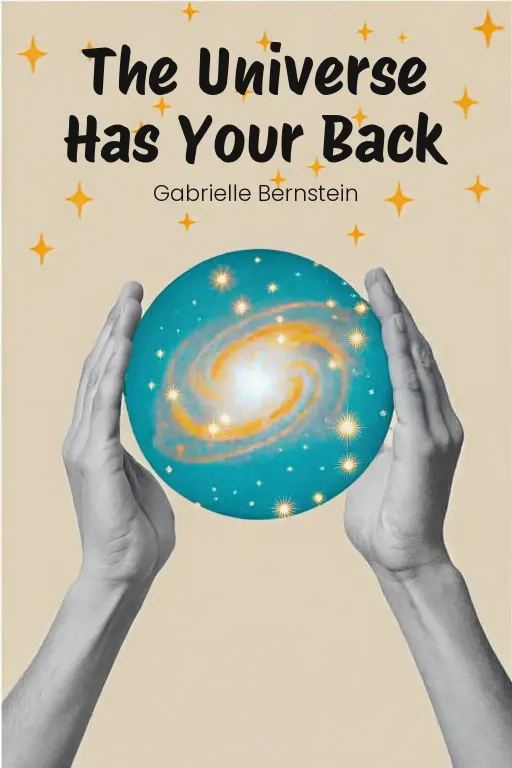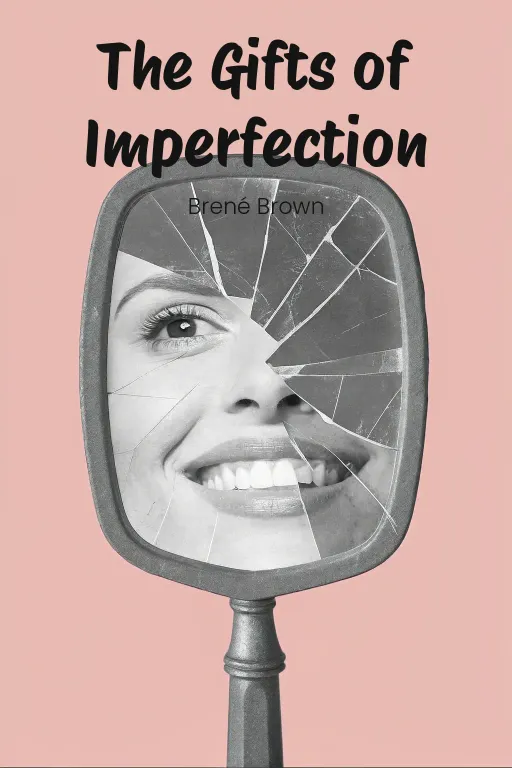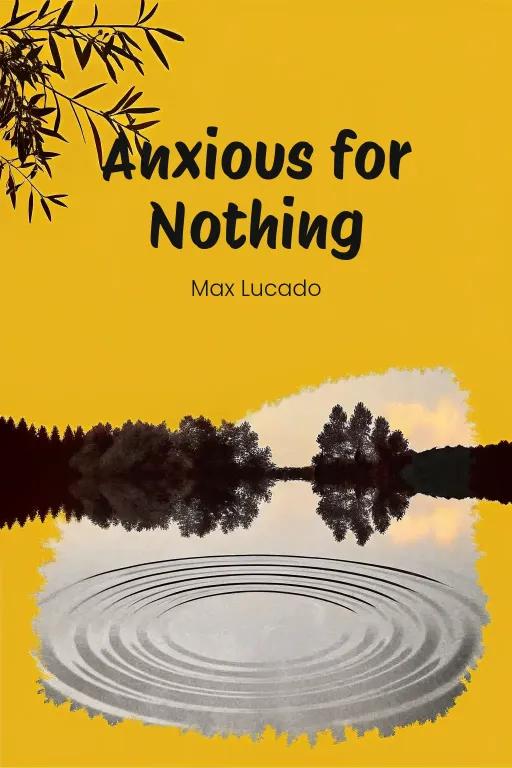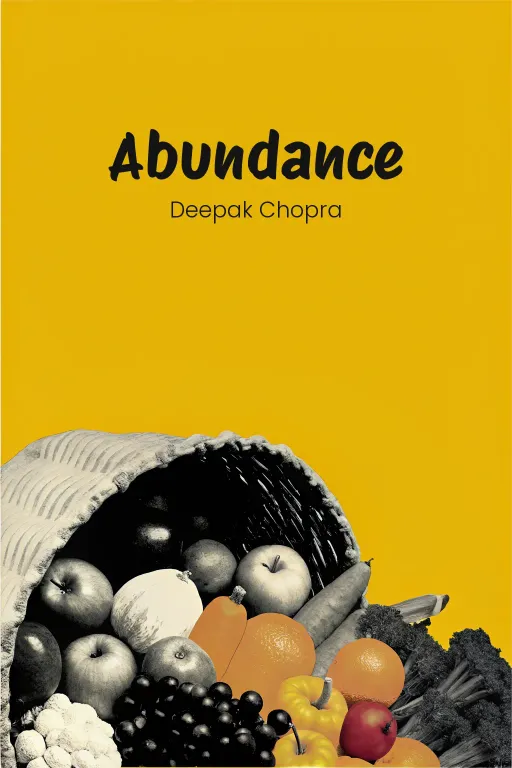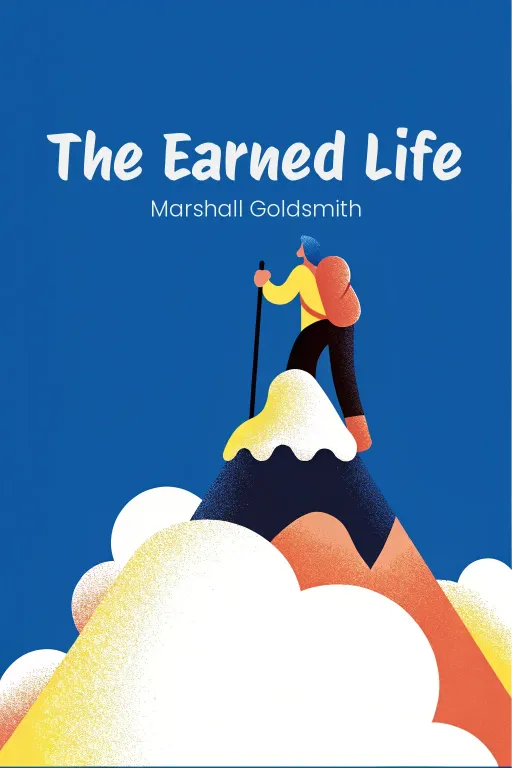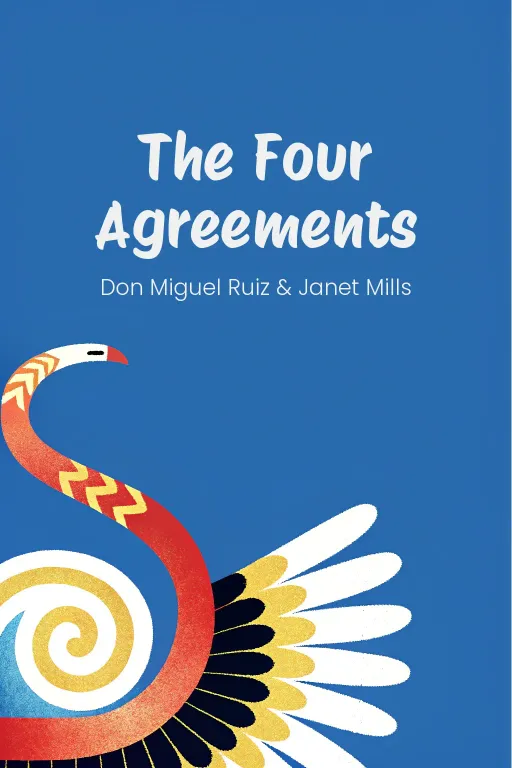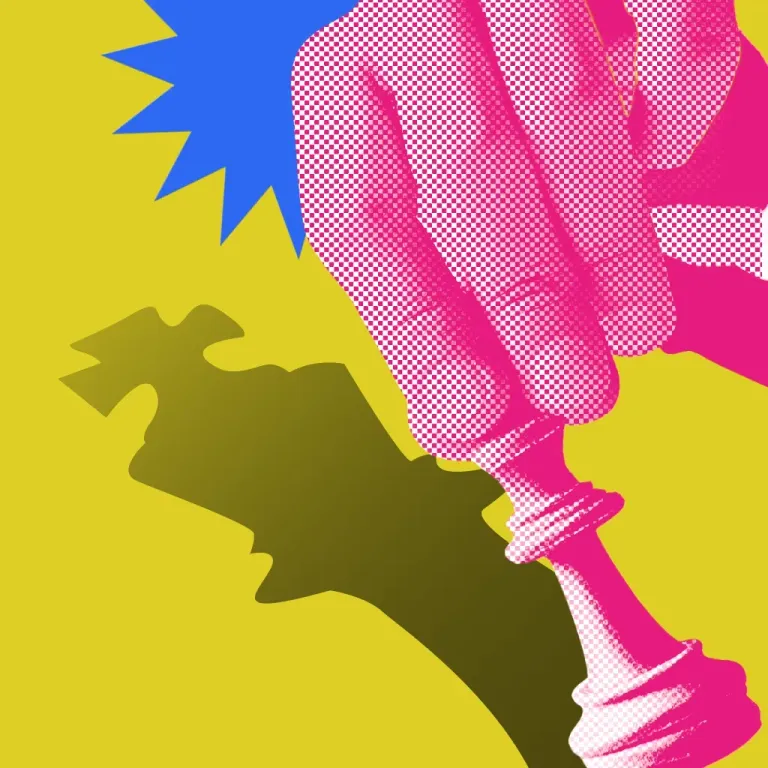
Find Peace: Now!
Podcast by The Mindful Minute with Autumn and Rachel
Introduction
Part 1
Autumn: Hey everyone, welcome! Today we're diving deep into Eckhart Tolle's “The Power of Now”. We're talking about insights, transformation, and finding a real sense of peace. Rachel: Inner peace, huh? Sounds like trying to find a decent cup of coffee after midnight. But alright, Autumn, I'm game. Let's see where this goes. Autumn: You might actually dig this, Rachel. Basically, Tolle's book is all about shaking off the constant replay of past mistakes and the anxiety of what's coming next. He really zeroes in on how the present moment is the only thing that truly matters, the only thing that's real. Rachel: So, you're saying I should stop dissecting every awkward thing I said five years ago and stop stressing about next quarter's targets? Easier said than done, right? What are the actual steps here? Autumn: That's exactly what we're unpacking! Tolle guides us in understanding how our minds keep us stuck in a loop of suffering by clinging to our egos. And he gives us actual, usable tools to help us loosen that grip. Rachel: Tools, eh? Like a mental reset button, or...? Autumn: Kind of! And we'll also explore how to heal those old emotional wounds and deal with what Tolle calls the “Pain-Body”. You know, that part of us that seems to collect and feed off of old hurts. Rachel: Fantastic, because my “Pain-Body” could probably star in its own reality TV show. Autumn: Exactly! And Tolle emphasizes how important it is to have conscious relationships. How our individual journey towards awakening can actually create ripples of peace in the world around us. It's like stripping away layers, like peeling an onion, to get to the good stuff at the center. Rachel: Hopefully, it won't make us cry like an onion, though, right? Autumn: Only tears of clarity, my friend. So, let's get started!
Understanding the Mind and the 'Now'
Part 2
Autumn: So Rachel, we’re talking about living in the "Now", a pretty big concept, right? Tolle says the mind causes all our suffering. But honestly, suffering feels kinda unavoidable sometimes. I mean, life happens – things break, people hurt us, deadlines pile up. How is all of that just... our mind's fault? Rachel: Yeah, I buy that. Like, your dishwasher breaks, then your roof starts leaking, and Tolle’s telling me it’s my mind that’s the problem? With all due respect... Autumn: Exactly, Tolle isn’t saying that suffering does not exist. I mean, loss and challenges are part of life. It's the suffering we “add” to those moments. We resist what's happening, blame ourselves or others, or just replay events over and over. The mind's non-stop thinking turns a quick flash of pain into something much bigger. Rachel: I see, so, I stub my toe but then spend an hour mad at myself for leaving the chair there instead of just going "Ouch!" and moving on. Autumn: Yeah! Tolle explains that the mind always has this "inner commentator" that judges and sort of traps us in its stories. And we think that voice is us, instead of seeing it as just something we experience. Rachel: So, wait. You're saying that I thought that I am the main character of my life, but I’m actually the narrator who won’t shut up? Autumn: Well, I’d say that the narrator isn’t your true self at all. Tolle talks about the ego and how it creates a fake identity that uses stories about the past or worries for controlling something. It's like a bad roommate just stirring the pot as we have to keep achieving, possessing, or controlling something. Rachel: Ok, but if the ego is, like, a villain keeping me trapped in sadness, then why aren't we all onto this? Shouldn't humanity be past this con-artistry by now? Autumn: Actually, a lot of us are onto it. That’s why people like Tolle write books! It’s been talked about across centuries and spiritual traditions. Tolle just makes it a little easier to grasp, you know? Like, if you think your thoughts are all you are, you'll defend them. But realizing they're just thoughts? That weakens the ego's hold. Rachel: Sure, sure, but that is way easier said than done. Although, Tolle's metaphor of the beggar sitting on a treasure chest was pretty eye-opening to me. This inner-peace inside of us is just waiting to be tapped. I don't know if I buy it, though. Sounds a little…convenient, you know? Autumn: Okay, I get that! It does feel idealistic, I'd say. But, the treasure chest is a symbol of peace and presence within us. I mean, we’re so used to looking outward - for validation, success, or constant thinking - that we forget to look inside. Tolle isn’t saying it’s effortless; he is pointing our focus inward. Rachel: Instead of checking Instagram for validation, I check in with my breathing? Autumn: Exactly! Tolle thinks that anchoring to the "now" is key to quieting the mind. It’s like resetting our compass to point at life, instead of random mental rabbit holes. Rachel: But anchoring... How we do even start? Like, doesn't that just use more of the mind? Autumn: Not really. He suggests things like just watching your thoughts or really using your senses. So, say you’re stressed, instead of thinking of "what-if" scenarios, you pause and feel your feet on the ground or your breath. You're shifting away from mind-created drama to the "now". Rachel: And the senses can't be overthought, right? Coffee smells like coffee; there is no commentary. Autumn: Spot on. Our senses pull you into the present since it does not require overthinking. Tolle takes this further by "watching the thinker" and being aware in your head, but without judging it. You’re like a removed person watching your mind. Rachel: Detached observer, huh? That sound interesting! Wouldn’t overthinkers just think about how they’re observing? Autumn: In the beginning, yeah, that’s normal. It's like learning anything, it takes practice! But soon, you’ll notice when your mind is getting carried away. Then, simple awareness can stop it. Rachel: So say that I’m internally screaming about deadlines, I should just sit back and say, "Gee, look at Rachel panic, isn't that weird?" Autumn: <Laughs> you’re getting there! Creating space between yourself and your thoughts will help you. And with that space, comes freedom. You can skip fighting or holding your feelings and just see them for what they are. Rachel: Ah, that's when the shift occurs. Tolle says, "I can’t live with myself," and poof, he’s enlightened? Autumn: Yeah, exactly! That moment of despair made Tolle spot the split between "himself" and just sensing his thoughts. He let go of his mind's stories which let him find this deep peace from surrendering. It wasn’t nothing, but a liberation of truth, presence, and joy. Rachel: Yeah, I don’t know if I would call sleepless existentialism is a gateway to peace, but I appreciate the premise. So his mind went quiet, and now he’s just soaking up life in the eternal moment? Autumn: Well, it's less about constant bliss, and more about giving up that constant resistance. By surrendering to what is now, Tolle found new insight and fulfillment that wasn’t just up to what happened around him. And that's what he’s sharing. Rachel: Hmm. Let me sit on this for a minute…Or, let me try and slow down so I can really experience it in the "now". Remember, I'm still practicing, so. But I think I get the idea, it's very thought-provoking. Autumn: And you’re making progress already. Trust me, the mind can let go of baggage once we stop clinging to it.
Freeing Yourself from the Mind
Part 3
Autumn: Alright, now that we've laid the groundwork for being present, let's dive into how we actively free ourselves from the mind. This is where Tolle's actionable practices really come into play. Rachel: Okay, the practical stuff! I'm all ears. I'm guessing this is a bit more involved than just telling my brain to, you know, chill out? Autumn: Definitely. Tolle introduces this concept called “watching the thinker.” Essentially, it means observing your thoughts as if you're watching a movie. The core idea is to create some distance between yourself and the constant chatter of your mind. Rachel: Watching the thinker, huh? Is that a bit...meta even for me? Am I supposed to split myself into a thinker and a watcher now? Autumn: Well, in a sense, yes. Tolle points out that most of us completely identify with our thoughts. We think that the voice in our head is us. But when you step back and simply observe that voice, you realize it's not you, it's just a mental narrative. And that realization can be really liberating because it opens up space for awareness to emerge. Rachel: So, if my brain's going, "You totally messed that up," I'm supposed to just casually notice it, like, "Oh, hey, there's that inner critic again, doing its thing"? Autumn: Exactly! That's the key shift – from being the thought to witnessing it. Tolle often uses the analogy of a relentless sportscaster, constantly analyzing every single moment of your life. The moment you realize you’re just hearing commentary and not facts, that narrative starts to lose its grip. Rachel: Okay, I get it. But what's stopping the mind from just, you know, cranking up the commentary again? Say I manage to distance myself from a thought about, I don’t know, running out of oat milk. How do I stop it from immediately bombarding me with a whole new wave of worries? Autumn: That's where consistent practice comes in. Tolle suggests cultivating ongoing awareness. It’s not about silencing the mind – that's probably impossible! It's about observing without judgment. And over time, this awareness can interrupt the patterns of worry, letting those moments of peace slip through. Rachel: So, the goal isn't to fight my thoughts, but to kind of coexist with them, maintain a healthy distance? Sounds like having a strange roommate you eventually decide not to argue with. Autumn: That’s a great analogy! You don’t engage every time they complain about the thermostat, right? You just let their complaining pass. Rachel: Right, feels doable in theory. Okay, now emotions? Because those are often louder than thoughts, right? It's easy to say “observe your mind,” but what happens when the tidal wave of guilt or anger or anxiety hits? Autumn: Excellent question, Rachel. Tolle emphasizes that emotions are very closely tied to the mind’s narratives, but they’re experienced physically, in the body. He recommends the exact same approach to emotions as to thoughts: observe them without judgment or resistance. Rachel: So instead of thinking, "I'm angry because that idiot cut me," I just ask myself, "Okay, what's physically happening in me right now?" Autumn: Exactly. That little pause right there, it helps shift your focus from the mental story to the physical sensation. Maybe you notice tension in your shoulders, or a rushing heat rising in your chest. And by fully feeling the sensation without immediately labeling it or resisting it, the emotional energy actually starts to dissolve. Rachel: So, instead of letting the anger fuel a whole mental rant about bad drivers, I just go, "Hello, tight shoulders and clenched jaw, what’s up?” Autumn: Precisely! By observing the emotion as pure energy in your body, you actually reduce its power over you. Tolle even shares that during his awakening, he had to face years of accumulated anxiety. But instead of resisting it, he completely surrendered to feeling it. And that surrender transformed the emotion, and peace emerged. Rachel: Surrender sounds a bit scary, no? Isn't there a risk of just getting completely overwhelmed? Autumn: It can definitely feel that way initially, but Tolle stresses that no emotion lasts forever – it’s the resistance that prolongs it. When you fully surrender, you’re simply allowing the energy to move through you, like watching a storm pass rather than fighting the wind. Rachel: Got it. It's about weathering the storm instead of frantically trying to, like, patch windows mid-downpour. Autumn: Exactly! Emotional surrender is a kind of non-resistance that leads to healing. Rachel: Alright, we’ve covered thoughts, and emotions. Let's talk about what Tolle calls these “gaps in thinking.” Apparently, we're supposed to intentionally seek out these moments of stillness? Autumn: Yes, Tolle describes these gaps as doorways into presence. When the mind takes a break, even a brief one, you get a direct experience of inner peace. These moments often happen unexpectedly — like when you're watching a sunset or listening to a beautiful piece of music. Rachel: So, these gaps are like mental vacations? Autumn: Yes, but instead of just waiting for them to happen, Tolle actually suggests actively cultivating them! You do that by consciously pausing during daily activities. For instance, in between tasks, you might stop to take a deep breath or listen to the silence all around you. Rachel: And if there is no silence? My life feels more like, you know, endless background noise. Autumn: Even tuning into the noise itself can serve as a portal. Listen closely, without judgment – the hum of your refrigerator. It’s about noticing the spaces between sounds or thoughts. That act itself brings you to the Now. Rachel: Alright, you know, I've spaced out during sunsets before. But what about the gaps that come when I'm just... bored out of my mind? Autumn: Boredom can actually be a fantastic opportunity to practice presence. Instead of just labeling it as boredom, explore it: what does it physically feel like? Where does it show up in your body? You might actually find that the so-called "gap" within the experience holds an unexpected peace. Rachel: So boredom isn't the enemy – it's just a disguised invitation. That’s… annoyingly wise. Autumn: It really is. And once you start noticing these gaps, you know, they tend to expand over time, creating more room in your daily life for stillness and awareness. Rachel: I like this idea of poking holes in my endless inner monologue. Tolle also links thought patterns to time. Is this obsession with the past or the future really the core of the issue? Autumn: Precisely. Tolle argues that a lot of our suffering comes from "psychological time," which traps us in regrets and worries. The truth is, life only unfolds in the present, so thinking excessively about what was or what could be disconnects us from reality. Rachel: So washing the dishes while thinking about the email I forgot to send – or about the vacation I wish I booked – is just, you know, needlessly creating misery? Autumn: Spot on. Tolle suggests grounding yourself in the task at hand – feeling the water on your hands, hearing the sound of the dishes clinking. Being present eliminates the mind's need to escape into the past or the future. Rachel: By being fully in the now, I somehow trick my brain into dropping its time obsession? Autumn: It’s not a trick, it's more like a reorientation. When you focus on the present, there’s just no room for the mind to wander. The act of paying attention in itself literally disarms the ego. Rachel: Alright, staying present seems like the cornerstone. But Tolle also mentions using the body as a tool for presence–how does that work? Autumn: The body is a powerful anchor to the Now. Tolle suggests intentionally redirecting your attention from your mind to the aliveness within your body—like, just noticing the energy in your hands or the rhythm of your breathing. That shift pulls you out of the compulsive thinking, and grounds you in the present moment physically. Rachel: So by focusing on my hands or my heartbeat, I'm actually bypassing those endless thought loops? Autumn: Exactly. Simple, yet profound. By fully feeling the aliveness of your body, you reconnect with your essence, that sense of self beyond thought. And over time, this practice deepens your awareness and leads to greater inner stillness. Rachel: Well, I'll definitely have to try some of these techniques. And if nothing else, maybe I'll just notice my breathing more instead of spiraling over the oat milk shortage. Autumn: Baby steps, Rachel. Freeing yourself from the mind does take time. But the degree of freedom it offers is, it really is worth the effort. Rachel: Alright, I'll keep an open mind, ironically, while trying to quiet it.
The Pain-Body and Emotional Healing
Part 4
Autumn: So, with the mind a little quieter, we can start to look at the emotional stuff that sticks around. That's where Tolle brings in this idea of the Pain-Body. Rachel: Pain-Body, huh? Sounds like something out of a sci-fi movie. Are we talking repressed anger, or is this some New Age concept that's going to require a philosophy degree to understand? Autumn: A bit of both, actually. The Pain-Body is basically a build-up of all our past emotional hurts – the traumas, disappointments, all that stuff we haven't fully dealt with. And it’s not just our personal baggage; Tolle also talks about a “collective Pain-Body,” which is like this shared pool of human suffering built up over generations. Rachel: Okay, personal baggage I get. But everyone's baggage? That's one crowded overhead bin. So how does this… Pain-Body… actually affect us day to day? Autumn: Good question. Tolle says it's like a sleeping emotional monster that gets woken up by certain triggers. It could be a specific word, a situation, even just someone's tone of voice. And when it wakes up, it kind of takes over, feeding on negative emotions like anger or sadness. Rachel: So it's like this negativity vampire that needs to feed, huh? Autumn: Exactly! It wants to keep the pain going. Take someone who's been badly hurt by rejection, for example. If they sense any sign of rejection now, their Pain-Body can kick in, and they might overreact, shut down, whatever. It makes them see things way out of proportion because it's dragging all that old pain into the present. Rachel: Yeah, that rings a bell. I mean, haven't we all flown off the handle at something, then thought, "Where did that come from?" Sounds like that's the Pain-Body talking? Autumn: Absolutely. That "What was that?" feeling is key. It shows how the Pain-Body feels separate from your rational mind. Tolle would say that’s because it’s using your emotional energy, making you react way more intensely than you normally would. Rachel: Fantastic. So I've got this emotional hitchhiker along for the ride. How do I even begin to deal with this thing? Autumn: First, you have to recognize it. Tolle stresses that awareness is the key. You need to spot it when it’s happening – notice the emotions, the physical feelings, the patterns it follows. Rachel: Let me guess. We have to do it without judging ourselves, right? That seems to be a recurring theme in all of this. Autumn: Exactly! Judgment just makes it stronger. Suppressing it is no better because it pushes the Pain-Body underground, where it festers without you even realizing it. If you can step back, even just name the emotion — “I’m feeling anger rising” — you start to separate yourself from it. That act of naming is powerful because it reminds you that you’re the observer, not the Pain-Body itself. Rachel: So instead of saying, “I’m furious because that guy cut me off,” I just think, "Interesting, anger is happening"? Doesn’t that feel a little… detached? Autumn: It might at first, but that’s the point – you’re creating space so the Pain-Body can’t grab you so easily. Tolle uses a storm metaphor. You're not the storm; you're watching the storm. When you do that, the Pain-Body loses power because it needs you to react unconsciously to survive. Rachel: Okay, I see. But aren't we risking detachment here? If I'm always watching my feelings from a distance, how do I stay human? Autumn: Not at all, Tolle would say the opposite. By observing the Pain-Body, you allow yourself to feel emotions fully, but they don’t control you. It’s not about numbing yourself; it’s about being aware, so you can process the feelings without getting lost in them. Rachel: Okay, let's say I’m trying this. The Pain-Body flares up, I name the emotion, observe without judgment. Then what? Does it just disappear in a puff of smoke? Autumn: Not immediately. Tolle stresses that it takes practice to loosen its grip. He talks about one man who carried a lot of resentment from being humiliated as a child. It shaped his behavior for years. Even light teasing would set him off, and he’d get defensive, which hurt his relationships. Rachel: Yeah, we all know someone who's got specific buttons, right? Autumn: Exactly! But this guy started to notice when his Pain-Body was kicking in. He’d feel it physically – a tightness in his chest, a pit in his stomach – and he’d say to himself, “This is my Pain-Body. It’s not who I am.” Over time, that distance helped him separate from the pain. Things that used to spark conflict became chances for self-awareness and eventually, healing. Rachel: So, he basically starved the Pain-Body by not reacting, and it faded away? Autumn: Exactly. Tolle says it's like clouds in the sky. By being aware, you let the emotions express themselves and pass, instead of fighting them or clinging to them. Rachel: And this connects to his whole thing about being present, right? Staying in the moment instead of letting the past run the show? Autumn: Absolutely! The more present you are, the less power the Pain-Body has to distort reality. Focusing on things like your breath or the sensations in your body pulls you back to the present and away from the stories that feed the pain. Rachel: Right, so what about this collective Pain-Body you mentioned? I assume this isn't just about personal healing – it's about humanity, too? Autumn: Exactly. The collective Pain-Body is like humanity’s shared emotional baggage – centuries of war, oppression, prejudice… all the trauma. Tolle sees a lot of the conflict and suffering in the world as being driven by these unresolved pains. And just like individual Pain-Bodies, they keep people stuck in cycles of unconscious reaction. Rachel: So, by healing our own Pain-Bodies, we’re helping to break those bigger cycles? That sounds… ambitious. But I guess every little bit helps. Autumn: Exactly! Tolle thinks personal awareness and healing can have a ripple effect – better relationships, better communities, even a better world. By breaking free from those patterns ourselves, we set an example and help stop the cycle of pain from continuing. Rachel: Okay, I'll admit. It’s a little daunting, but empowering. If healing myself can contribute to a more peaceful world, I’m in! Autumn: That's the spirit! Small steps can make a huge difference—for you and for the world.
Enlightened Relationships
Part 5
Autumn: So, as we release emotional baggage, naturally we move towards being more present in our relationships. And that leads us to a really transformative idea from “The Power of Now”: enlightened relationships. Rachel: Ah, relationships... the ultimate emotional obstacle course. But what does it even mean for a "relationship" to be enlightened? Fewer fights over whose turn it is to do the dishes? Autumn: It's much deeper than that, Rachel. Enlightened relationships are about escaping ego-driven patterns – things like dependency, conflict, and heavy attachment. Instead, you're building connections based on being present, feeling whole within yourself, and growing together. Tolle shows us how changing ourselves can really change how we handle relationships. Rachel: So, the idea is, once you clean up your own internal mess, you stop making it someone else's problem? Sounds like it could save some awkward, "I'm sorry I yelled at you" moments. Autumn: Exactly, that's a big part of it. Let's start with how Tolle explains traditional versus conscious relationships. He describes many relationships—romantic or not—as "addictive." These are connections where people try to get their sense of worth from someone else, like they're not complete on their own. Rachel: Ah, codependency. So, basically, one person's saying, "Make me whole!" and the other person's like, "Okay, until I completely run out of energy"? Autumn: That's a pretty good way to put it. Tolle says these "addictive relationships" often have really high highs and really low lows, because they're all about ego and neediness. Think of those on-again, off-again couples always caught in drama, arguments, and big romantic gestures. It's not really love; it's more about control, attachment, and fear. Rachel: So, these relationships are less about the person you're with and more about trying to fix your own insecurities. Like emotional junk food. Autumn: Precisely. The ego tricks us into thinking that we can only find true happiness through someone else. And when our partner doesn't live up to those impossible expectations—because nobody can—then we get resentment, blame, and conflict. It's a never-ending cycle. Rachel: Okay, so what's the solution? How do we go from chasing junk food to… something healthier? A balanced diet, maybe? Autumn: Conscious relationships are the answer. In these connections, both people feel secure and whole on their own. Instead of looking for validation or trying to fix each other, they connect as equals—being fully present and accepting. Rachel: That sounds… a lot healthier. But, let's be honest, most people don't go into relationships already "whole." Are these ideas realistic for everyday life? Autumn: That's a fair point, Rachel. Tolle knows that. Enlightened relationships aren't about being perfect; they're about being aware in the relationship, noticing those ego-driven patterns when they pop up, and dealing with them consciously together. He gives an example of a couple who realized their arguments were coming from their "Pain-Bodies." They weren't really fighting about the specific issue; they were triggering each other's past hurts. Rachel: Wait, hold on. So when a couple's fighting over, say, who left the coffee pot empty, it's not actually about the coffee pot? Autumn: Usually, it isn't. In the example Tolle gives, the blame game they were playing was rooted in something deeper. The wife's accusations that her husband wasn't emotionally available were linked to her childhood experiences of neglect, while the husband's defensiveness came from his fear of conflict. They weren't seeing what was happening in the present moment—they were stuck in their past pain. Rachel: Wow. So every fight turns into an emotional excavation. How did they fix it? Did they go to therapy? Autumn: Partly, yes, but it started with awareness. They both took responsibility for noticing what triggered them, without blaming each other. Like, during arguments, they'd pause and ask themselves, "What am I feeling right now? Is this about what's happening now, or is it something deeper?" Over time, instead of just reacting, they started responding with understanding and empathy. Rachel: Let me guess—mindful breathing was involved? Autumn: Of course! They also practiced being fully present with each other—really listening without planning a response, and acknowledging each other's feelings instead of dismissing them. These small shifts helped them turn their cycle of reactivity into something more supportive and conscious. Rachel: Okay, I see how that could work in theory, but there are still practical challenges. I mean, when someone's really triggered, being present feels like the last thing they want to do. What's Tolle's advice for staying grounded when things get heated? Autumn: It goes back to recognizing the ego and not letting it take over. When a conflict comes up, instead of saying, "You made me feel this way," Tolle suggests pausing and taking ownership of your reaction. Like, "I'm feeling anger rising, and it's connected to something I haven't dealt with yet." That opens the door for a calmer, more understanding conversation. Rachel: Easier said than done, though. Letting anger take the wheel is so tempting—especially when you're arguing about, you know, which streaming service to subscribe to. Autumn: True, but Tolle isn't asking for perfection. He encourages small, conscious practices like mindful listening. That means listening to your partner without thinking about what you're going to say next, or jumping in with a quick fix. Instead, you reflect their emotions back to them with phrases like, "I hear that you're upset." It's not about solving the problem; it's about connecting. Rachel: So, basically, empathy on steroids, powered by awareness. Got it. And I guess this applies to more than just romantic relationships? Autumn: Absolutely. These ideas work for all connections—family, friends, colleagues. Relationships, according to Tolle, are a spiritual practice, a mirror reflecting our inner state. When a friend criticizes us, for example, we can either get defensive and lash out, or we can use that moment to explore why we're feeling triggered. Rachel: Ah, the mirror idea. So my reaction to my dad's opinions isn't about him—it's about something I need to sort out in myself? Autumn: Exactly. Relationships show us our hidden Pain-Bodies and ego patterns, giving us a chance to heal. And when we approach these interactions consciously, they change from being battlegrounds to opportunities for growth. Rachel: Alright, conscious relationships sound revolutionary… but also exhausting. Do they require both people to be equally self-aware? Autumn: Ideally, yes, but even if just one person is practicing presence, it can make a big difference. When you approach a heated interaction with calm and compassion, it often eases the tension and encourages the other person to do the same. It's like a ripple effect. Rachel: Alright, I'll admit—it sounds both transformative and achievable. Maybe more conscious listening can help me get through family gatherings with fewer... disagreements. Autumn: <Laughs> Definitely. One mindful moment at a time, Rachel. Relationships built on presence create a solid foundation for love and growth—not just for individuals, but potentially for society as a whole.
Collective Awakening and Inner Peace
Part 6
Autumn: So, with relationships rooted in presence, we finally get to explore the broader impact of individual awakening on the collective consciousness. It kind of culminates our discussion by taking those individual practices and scaling them up to a global perspective, really highlighting how transformative presence can be on a collective level. Rachel: Okay, so we’re zooming way out now, huh? From like, personal growth and enlightened relationships to… saving the world? Autumn: <Laughs> You're not totally wrong! Tolle sees collective awakening as the next step in human evolution, you know? It’s about how individual peace can ripple outward, changing everything from our social systems to how we handle global issues. Rachel: Right, so if enough people are mindful, we get some kind of planetary upgrade? Sounds a bit utopian, great in theory, but what's the engine actually driving this? Autumn: Well, it all starts with dissolving fear. Tolle believes fear is the root of so many societal problems: division, conflict, exploitation… you name it. He says that fear comes from our minds constantly jumping to the future or stuck in the past. When we can break free from that cycle through presence, we stop acting out of fear, and start acting from a place of clarity. Rachel: Fear, huh? That’s a huge one. I can see how presence helps with personal anxiety, like, calming your nerves before public speaking. But fear on a societal level feels pretty hardwired, doesn’t it? Scarcity, competition, survival… How can a handful of mindful people change that? Autumn: It’s not about just a few people, it’s about the ripple effect Rachel! When even one person is truly present, it shifts their interactions, their relationships, their decisions. That creates environments that are a little less reactive, a little more compassionate, and those shifts build over time. Tolle gives a great example actually about fear specifically. Rachel: Lay it on me. Autumn: Think about those societal conflicts fueled by fear: fear of not having enough, fear of "the other," fear of losing power. Tolle says presence dissolves that fear because it brings you back to what’s actually real, right now. Like, if a community feels threatened by outsiders, that fear might turn into hostility. But the fear itself often comes from imagining the worst-case scenarios – things that the mind creates, not actual present-day reality. Rachel: So, if you focus on, what’s real, rather than catastrophizing what might happen, you break those cycles driven by fear? Autumn: Exactly, presence creates space for empathy and for finding rational solutions. And when that way of thinking spreads across groups, institutions, even countries, it changes how we deal with problems. Instead of just reacting, we make decisions based on awareness and a desire to cooperate. Rachel: Sounds fantastic in theory, but let’s be real. Human history… Greed, conflict, oppression… These aren’t just personal problems, they’re built into the system. Is presence really enough to tackle something like, I don’t know, climate change? Autumn: Tolle would say yes, because at the heart of these big systemic issues is unconsciousness - the ego operating on a collective level. When you see exploitation for example, a lot of that comes from fearing scarcity, or the ego’s need to dominate. Awakening at the individual level addresses these root causes, and shifts priorities toward caring for the planet and each other, instead of just chasing short-term gains. Rachel: Which I assume ties into the whole ‘we’re all connected’ thing, right? The idea that humanity and the planet are one and the same? Autumn: Precisely, Tolle uses a natural metaphor, he describes an evolved consciousness as a balanced ecosystem, where every action benefits the whole system. The ego, on the other hand, disrupts that balance by putting “me” over “we.” As we awaken, we begin to see how our actions impact the world around us. Rachel: I get how this works on a smaller scale, like a company going green because the CEO is enlightened. But what about the collective Pain-Body thing you mentioned earlier? If humanity is dragging around centuries of trauma, doesn’t that slow down the whole process? Autumn: It definitely makes it harder. But Tolle believes healing the collective Pain-Body starts just like healing your own, with awareness. When dealing with issues like racial injustice, you have to acknowledge and own the pain of the past. If societies stop denying or avoiding these hard truths, it opens to door to real healing and positive change. Rachel: Sounds good in theory, but collective wounds are kinda messy. They’re loud, divisive, and often create even more resistance you know? How do you even untangle something so huge? Autumn: It starts with individuals Rachel. Tolle says that when people face their own pain, they’re less likely to project it outward – onto other people, onto institutions, onto the world. Someone who processes their fear of vulnerability, for example, won’t feel the need to dominate others just to feel strong. Multiply that by millions of people, and you get a society that's less driven by fear and the ego. Rachel: So, the hope is that personal awareness scales up. One mindful executive leads to a more compassionate workplace, which inspires other companies, and eventually… world peace? Autumn: Maybe not instant world peace, but shifts like that are totally possible. Tolle shares a real-world example of this transformation. He talks about Martin, a corporate executive who was all about competition, profit, and control. But after discovering Tolle’s teachings, he turned inward, started practicing presence, and fundamentally changed how he led. Rachel: Let me guess… Less of a dictator, more of a collaborator? Autumn: Exactly. Martin started treating his team with empathy and respect, and created a more harmonious and innovative workplace. Over time, this extended beyond his company. They adopted sustainable practices, invested in community projects, and inspired other organizations to do the same. Rachel: So, his personal awakening created a ripple effect, starting small and growing big enough to inspire wider change. That’s actually kind of amazing. Autumn: It really shows the power of one person's transformation. Tolle believes this is how collective awakening gains momentum. When enough of us are grounded in presence, we naturally model more conscious ways of being, which inspires others to do the same. It’s less about trying to fix the world and more about living in alignment with awareness. Trusting that those ripples will create the larger waves. Rachel: Alright, I get the appeal. Healing yourself to impact the world. It’s a lot to take in, but it seems… hopeful. Autumn: It is! And the great thing is, you don’t have to solve everything right away. Tolle reminds us to be patient and persistent, knowing that even small moments of presence contribute to the collective shift. Rachel: Alright, fine. I’ll try being mindful during my commute or when Uncle Joe starts talking politics. Baby steps, right? Autumn: That’s all it takes Rachel. One conscious choice at a time. And with enough of those, who knows how far the ripple will spread?
Conclusion
Part 7
Autumn: So, to wrap things up, Eckhart Tolle’s “The Power of Now” is really an invitation, isn't it, to step outside the constant noise in our heads and find freedom in the present moment. We talked about how the mind loves to replay past hurts and worry about the future, how the ego often defines who we think we are, and how simply being aware can open up space for healing, connection, and inner peace. Rachel: Right. And we dove into the whole concept of the Pain-Body—that sneaky emotional baggage we carry around—and how just observing it without judgment can actually start to weaken its hold on us. Oh, and relationships! Tolle reframes those as opportunities for growth, not just endless cycles of drama or unmet needs. Autumn: Exactly! And the core idea is that personal awakening isn’t just about feeling good yourself, you know? It actually creates a ripple effect, influencing our relationships, our communities, and even global consciousness. By grounding ourselves in the present, we can start living with more clarity, authenticity, and, well, compassion. Rachel: Okay, challenge time. Start really small. Observe your thoughts, maybe just anchor yourself in the moment by noticing your breath or feeling your feet on the ground. Don't analyze it to death—just… notice. Who knows? Maybe that one mindful choice is the start of something much bigger. Autumn: That’s beautifully put, Rachel. And remember, inner peace isn't some distant goal, it's already right there inside you, waiting to unfold. Like Tolle says, life only ever happens in the Now. And that’s where your power is. Rachel: Alright, Autumn. I think even my overactive mind can kind of get on board with that. At least, for now. Autumn: One step at a time! Thanks for listening, everyone—here’s to finding presence in each and every moment!
